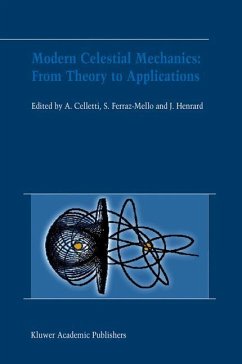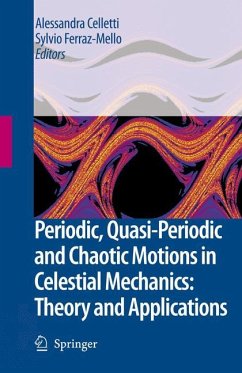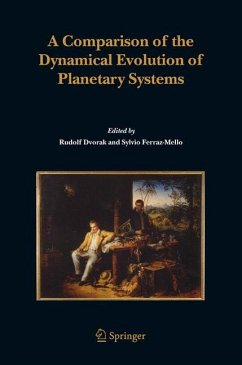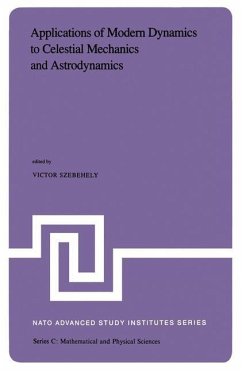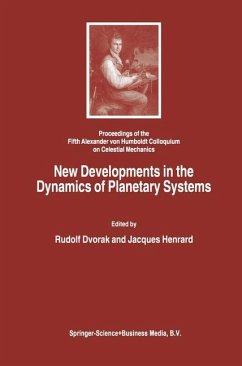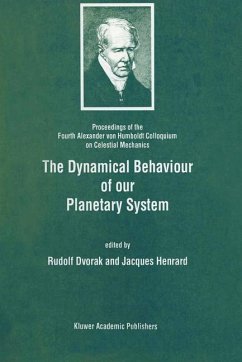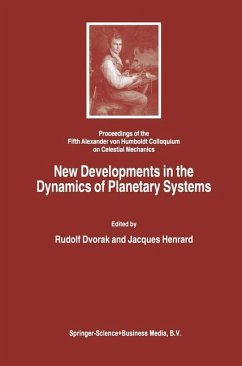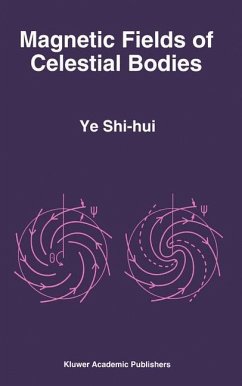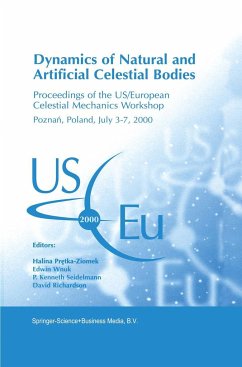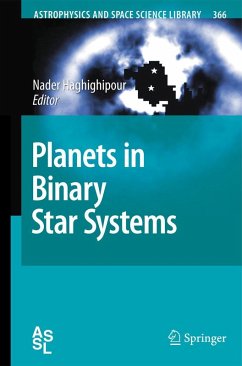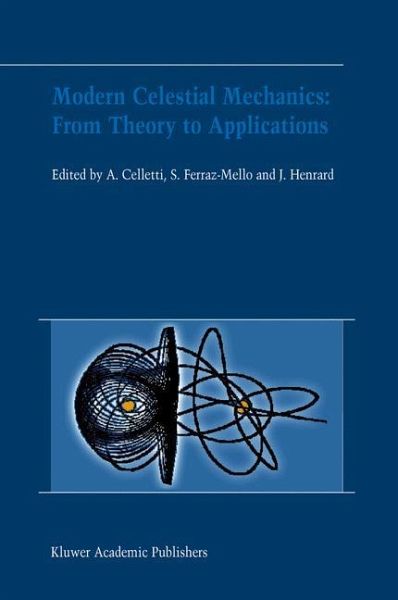
Modern Celestial Mechanics: From Theory to Applications
Proceedings of the Third Meeting on Celestical Mechanics - CELMEC III, held in Rome, Italy, 18-22 June, 2001
Herausgegeben: Celletti, Alessandra; Ferraz-Mello, Sylvio; Henrard, Jacques
Versandkostenfrei!
Versandfertig in 6-10 Tagen
151,99 €
inkl. MwSt.

PAYBACK Punkte
76 °P sammeln!
At the opening of the "Third Meeting on Celestial Mechanics - CELMEC III", strong sensations hit our minds. The conference (18-22 June 2001) was being held in Villa Mondragone, a beautiful complex of buildings and gardens located within the township of Monte Porzio Catone, on the hills surrounding Rome. A former papal residence, the building has been recently restored by the University of Rome "Tor Vergata" to host academic activities and events. The conference room is called "Salone degli Svizzeri": here, Gregory XIII, on February 24, 1582, gave its sanction to the reform of the Julian calend...
At the opening of the "Third Meeting on Celestial Mechanics - CELMEC III", strong sensations hit our minds. The conference (18-22 June 2001) was being held in Villa Mondragone, a beautiful complex of buildings and gardens located within the township of Monte Porzio Catone, on the hills surrounding Rome. A former papal residence, the building has been recently restored by the University of Rome "Tor Vergata" to host academic activities and events. The conference room is called "Salone degli Svizzeri": here, Gregory XIII, on February 24, 1582, gave its sanction to the reform of the Julian calendar and declared officially in use the calendar still adopted nowadays. The magnificent high walls and tall ceiling strongly resounded, giving to our voice a peculiar Vatican sound, which took us by surprise. May be - we thought - a distant echo of the very words of Gregory XIII proclaiming the modem calendar was still haunting the room. Around us, in the audience, many countries were represented, thus indicating that the idea of putting together the three "souls" of modem Celestial Mechanics - perturbation theories, solar and stellar system studies, spaceflight dynamic- had been successful. CELMEC III is in fact the latest of a series of meetings (the first two editions took place in 1993 and 1997 in L' Aquila, Italy) whose aim is to establish a common ground among people working in Celestial Mechanics, yet belonging to different institutions such as universities, astronomical observatories, research institutes, space agencies and industries.





